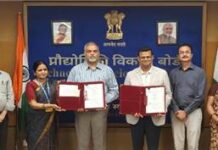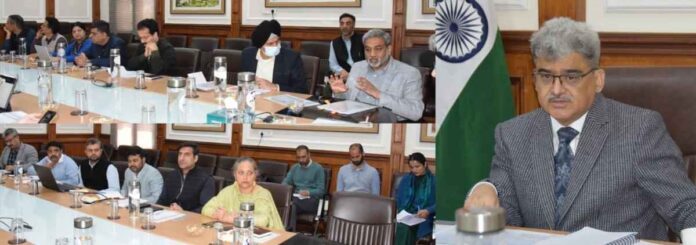The implementation of the Business Reform Action Plan (BRAP) 2024, aimed at improving the Ease of Doing Business (EODB) in the Union Territory of Jammu & Kashmir.
Dulloo emphasized the need for a collaborative approach involving stakeholder consultations to gather feedback for comprehensive analysis and informed action. He instructed that separate feedback sessions be held with citizens and stakeholders in both divisions of the UT to ensure inclusivity in decision-making. This approach will help eliminate outdated and cumbersome regulations that hinder business growth.
The Chief Secretary directed the Industries & Commerce (I&C) Department to compile department-wise suggestions for deregulation and swiftly remove unnecessary compliances that burden businesses and citizens. He underscored the importance of ensuring that services under the Single Window System are provided digitally and within a specified timeframe, stressing that the system should be aligned with its original objectives. The I&C Department was tasked with analyzing whether these services are available online or offline and submitting a detailed report with recommendations for improvements.
As part of the push for digital transformation, Dulloo also urged the I&C Department to accelerate the digitization of data related to Micro, Small, and Medium Enterprises (MSMEs). He appointed the Director of Industries, Jammu, as the nodal officer to oversee and expedite this process. The Chief Secretary stressed the importance of documenting key aspects of MSME operations, such as trade details, working capital, credit portfolio, transactions, manpower, and machinery. This data will allow the government to provide timely support, credit linkages, and policy interventions, strengthening the MSME sector across J&K.
During the meeting, Vikramjit Singh, Commissioner Secretary of I&C, briefed the attendees on the UT’s progress with BRAP 2024. He informed that out of the 434 reform points across various departments, 424 have been successfully implemented, with the remaining 10 set for completion by the March 15th deadline. All necessary evidence has been uploaded on the national portal, and a final assessment will be conducted by the Department for Promotion of Industry and Internal Trade (DPIIT) based on user feedback, with results expected in April 2025.
The Business Reform Action Plan (BRAP), developed by DPIIT, is designed to simplify business regulations and create a more business-friendly environment. Since its inception in 2015, six editions of BRAP have been completed, and the seventh edition, BRAP 2024, will culminate on March 15th, 2025. The initiative, which includes BRAP+, RCB+, and other reforms, aims to enhance the overall business climate across India.



















